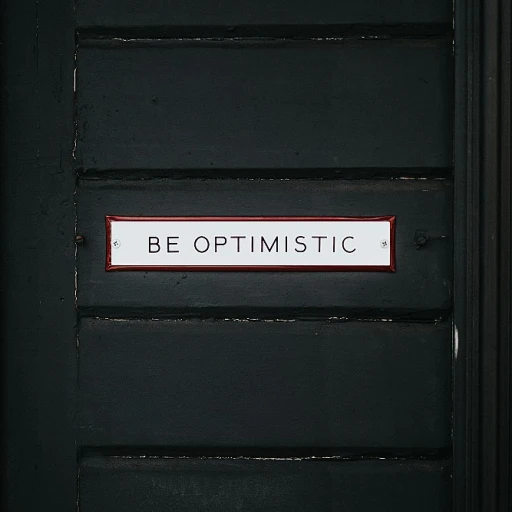
Understanding Recruitment Assessment Tools
Decoding the Role of Assessment Tools in Hiring
In the dynamic landscape of recruitment, assessing candidates effectively is paramount for organizations striving to secure the best talent. The utilization of assessment tools in the hiring process enables companies to evaluate potential hires' capabilities beyond mere resumes. These tools, ranging from skills tests to cognitive ability evaluations, offer insights into a candidate's suitability for a particular job role. Recruitment assessment tools have revolutionized the hiring process by providing a more structured and objective method of evaluating candidates. Unlike traditional hiring practices that often rely heavily on subjective assessments, these tools introduce measurable benchmarks and criteria to ensure candidates possess the necessary skills and competencies. This is crucial, especially in roles where technical proficiency and problem-solving abilities are imperative. Pre-employment assessments serve not only to vet candidates but also enhance the overall candidate experience. Candidates today expect transparent and engaging processes that respect their time and provide clear insights into their job performance potential. By implementing comprehensive talent assessment tools, organizations not only streamline the hiring process but also bolster their employer brand. The impact of these tools extends to hiring managers, who gain valuable data to make informed hiring decisions. By utilizing assessment features such as video interviews and cognitive tests, organizations can uncover soft skills and other attributes vital for success in a role. The goal is to mitigate biases and provide equal opportunities for all candidates, promoting a fairer hiring landscape. For companies eager to elevate their employer branding, integrating effective recruitment assessment tools is a strategic move. Embracing these tools not only aligns with the best practices of modern hiring but also demonstrates a commitment to high standards in recruitment. For further insights on elevating your brand, explore compelling employee value proposition examples.The Impact on Employer Branding
Building a Strong Employer Brand Through Assessment
Recruitment assessment tools play a pivotal role in shaping a company's employer brand. A strong employer brand is not only attractive to potential hires but also essential for retaining top talent. These tools, when utilized effectively, reflect a company’s commitment to fair and objective hiring practices. Candidates today are drawn to organizations that value transparency and equality throughout the hiring process. By using standardized assessments, companies can demonstrate their dedication to these principles, enhancing their brand reputation. These assessments can include a variety of methods, such as cognitive ability tests, skills assessments, and pre employment evaluations, to ensure a well-rounded approach. Moreover, the candidate experience is greatly impacted by the way these tools are implemented. Employers that prioritize ease of use and clarity in their assessments contribute to a positive experience, which in turn, strengthens their brand perception. Features like video interviews and interactive tools can streamline this process and engage candidates more effectively. Not only do these tools boost efficiency in identifying the best fit for a role, but they also help in crafting compelling employee value propositions (EVPs). For more insights on how EVPs can enhance your employer brand, you can explore crafting compelling employee value propositions (EVPs). An attractive employer brand, shaped by thoughtful hiring strategies, positions the company as an employer of choice in the competitive job market. To sum up, recruitment assessment tools do more than just streamline the hiring process. They significantly contribute to an organization's image and attractiveness as a workplace, guiding hiring managers in making informed hiring decisions and ensuring a consistent message is communicated to potential candidates.Trends in Recruitment Assessment Tools
Emerging Developments in Recruitment Assessment Practices
The rapidly evolving landscape of recruitment assessment tools is largely driven by the need to enhance the candidate experience and streamline the hiring process. With organizations keen on attracting the right talent, several key trends have emerged that are transforming how assessments are deployed in the recruitment process.
An important trend is the growing focus on video interviews. This assessment tool enables hiring managers to evaluate candidates' communication and soft skills more effectively. Video interviews allow for greater flexibility and efficiency in the pre employment phase, providing a better fit for assessing roles that require strong interpersonal skills.
Another trend is the increasing utilization of cognitive ability and skills tests. Organizations are now more than ever emphasizing assessments that gauge both technical skills and cognitive abilities. As technologies evolve, these tools help in identifying candidates who can adapt to changing environments, ensuring that job performance aligns with organizational goals.
Additionally, the integration of AI-driven tools is becoming prevalent. These tools facilitate more precise candidate assessments by analyzing a vast range of data points, helping to predict job fit and future performance accurately. This results in reduced time-to-hire and assists in making informed hiring decisions that reinforce employer branding.
Finally, platforms like Toggl Hire are becoming popular for their user-friendly interfaces and comprehensive assessment features. Companies are seeking tools that not only test for technical skills but also provide insights into candidates' potential for growth within the company. These platforms offer customizable assessments tailored to specific roles, which is crucial for successful recruitment outcomes.
As organizations aim to make the hiring process as efficient and effective as possible, staying abreast of these enhancements in recruitment assessment tools becomes essential. They not only improve the hiring experience for candidates but also position the organization as a leader in innovative talent acquisition strategies.
Choosing the Right Tools for Your Organization
Evaluating Essential Components for Assessment Tool Selection
Choosing the right recruitment assessment tools is pivotal in refining the hiring process. Identifying the essential features that align with your organization's objectives aids in selecting the most effective tools. Here's a breakdown of key elements to consider:- Skill Assessment: Assessments need to accurately evaluate both the hard and soft skills required for the role. Tools that provide comprehensive skills tests ensure candidates possess the competencies critical for job performance.
- Cognitive Ability Testing: Evaluate a candidate's learning agility and problem-solving capabilities through cognitive ability tests. These assessments can be insightful for roles that require critical thinking.
- Candidate Experience: A smooth and engaging experience is crucial. Tools that offer features like video interviews and user-friendly interfaces enhance candidate interaction, making your organization stand out.
- Time Efficiency: Choose tools that streamline the process to reduce time-to-hire. Automated scoring and quick assessment tools ensure an efficient hiring process, allowing hiring managers to focus on top candidates.
- Integration Capability: Ensure the tools can easily integrate with existing recruitment systems to facilitate seamless workflow and data management.
- Cost-Effectiveness: Balance quality with cost. Consider both the immediate financial implications and the long-term benefits of employing efficient tools to make sound hiring decisions.
- Data Security : With increasing concerns about data privacy, ensure the assessment tool complies with standards to protect candidate information.
Challenges and Considerations
Overcoming the Difficulties in the Evaluation Process
Employers frequently encounter a range of challenges when integrating recruitment assessment tools into their hiring process. Understanding these obstacles is pivotal for organizations looking to enhance their candidate assessments and streamline their talent acquisition efforts.- Aligning Tools with Job Requirements
One key difficulty lies in selecting assessment tools that appropriately align with the specific roles being recruited for. Each job demands different skill sets, and it's crucial that the chosen tests accurately reflect the skills, cognitive abilities, and soft skills required. This ensures that the assessments provide meaningful insights into a candidate's job performance and suitability for the role. - Time Consuming Nature of Assessments
Another challenge is managing the time-consuming nature of implementing these tools without delaying the hiring process. Lengthy assessments can deter potential candidates, impacting the overall candidate experience. Thus, creating a balance between comprehensive evaluations and time efficiency is vital. - Comparing Key Features and Cons of Various Tools
With a plethora of assessment tools available, choosing the right tools to match organizational needs can be daunting. It's important to weigh the pros and cons of each tool, keeping an eye on features such as ease of use, candidate interface, and the ability to conduct video interviews. - Integrating with Current Recruitment Processes
Integration with existing recruitment systems and workflows often presents a barrier. Ensuring that new tools seamlessly blend with current procedures while enhancing the overall process is critical to maintaining efficiency and effectiveness. - Training Hiring Managers
Proper training for hiring managers on the usage and interpretation of assessment results is essential. Without adequate knowledge, there’s a risk of misjudging candidate skills and capabilities, leading to potentially poor hiring decisions.
Future Outlook for Recruitment Assessment Tools
Shaping the Future of Recruitment Assessment Tools
The landscape of recruitment assessment tools continues to evolve, underscoring their importance in the hiring process. The integration of advanced technologies and data-driven approaches marks the future trajectory of these tools, offering significant enhancements to candidate assessments. Anticipated trends include:- Emphasis on AI and Machine Learning: These technologies are expected to further refine assessments, enhancing both speed and accuracy in evaluating candidates' skills and suitability for specific roles. AI-driven tools will enable more nuanced insights, particularly in skills assessment and cognitive ability evaluation.
- Enhanced Candidate Experience: As competition for top talent intensifies, ensuring a seamless candidate experience is paramount. Tools that offer interactive and engaging formats, including video interviews and intuitive skills tests, are likely to become standard practice.
- Focus on Diversity and Inclusion: Future recruitment assessment tools will increasingly incorporate features designed to minimize bias, supporting more equitable hiring decisions. This shift aligns with broader organizational goals to build diverse teams that drive better job performance.
- Greater Integration and Flexibility: Pre-employment assessment tools that seamlessly integrate with existing HR systems will be critical. Flexibility in tailoring assessments to meet specific talent needs across various roles can offer organizations a competitive edge.
- Continuous Feedback and Development: There's a growing trend towards using assessment results not only to select candidates but also to develop their potential within the organization. Tools offering feedback loops that focus on soft skills development can enhance post-hire integration and performance.













